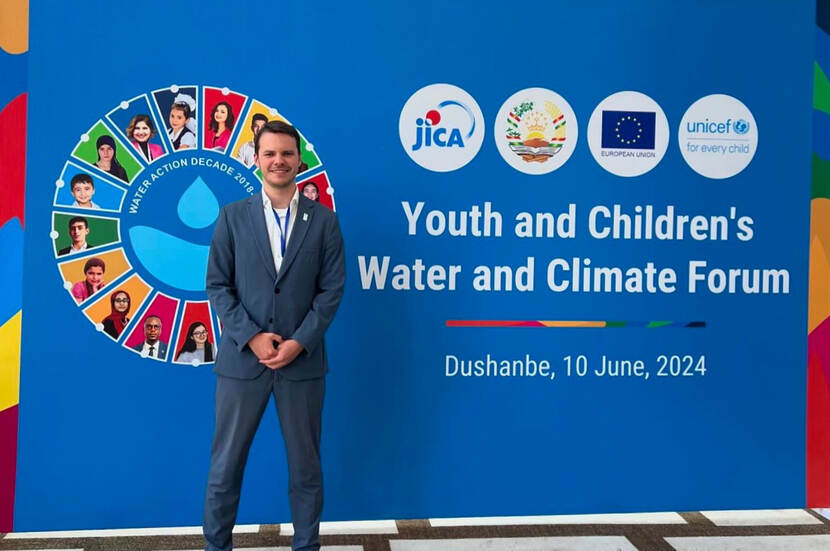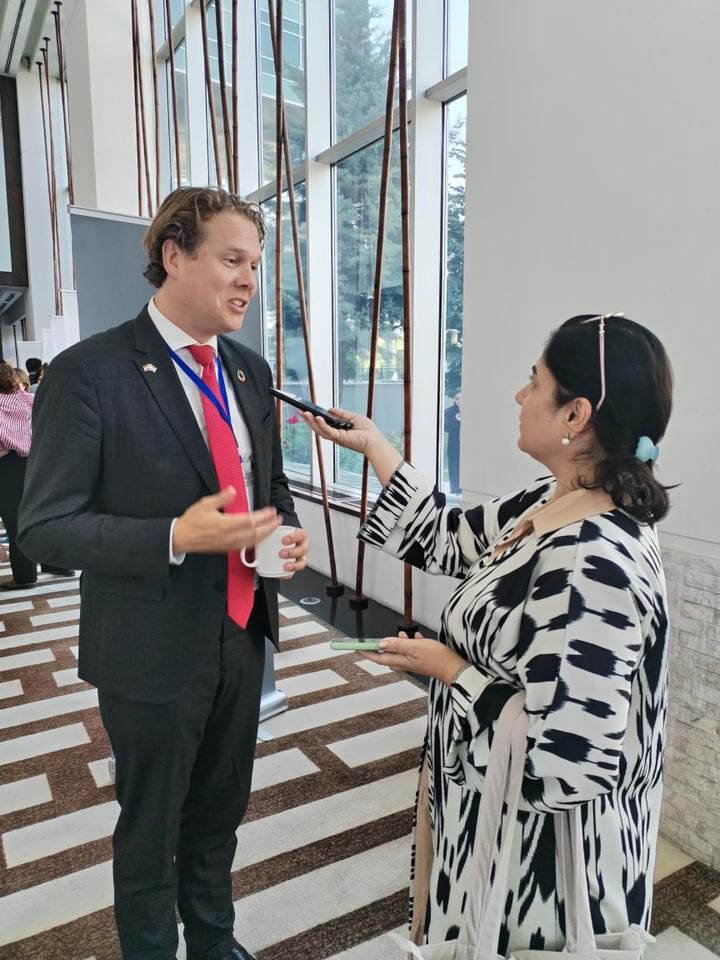From New York to Dushanbe: Youth following progress on the UN Water Action Agenda
The Third High-Level International Conference on the International Decade for Action ‘Water for Sustainable Development’, 2018-2028 was held from 10 to 13 June 2024 in Dushanbe, Republic of Tajikistan. The conference focused on a myriad of topics surrounding water, including the relationship between youth, children, and the right to water. The Netherlands co-hosted the conference because of the Dutch expertise in relation to water.
A specific forum on ‘Youth and Children’s Water and Climate’ was held during the conference, inviting youth representatives from all over the world to discuss the most pressing problems surrounding this topic. What did the Dutch youth present at the conference think? And what were the overall outcomes of the conference?

Thomas’ reflections
Thomas Westhoff was one of the Dutch youth present at the forum. The following paragraph is written by Thomas.
On invitation of UNICEF Tajikistan, I participated in the Dushanbe Water Process and the Youth and Children's Water and Climate Forum. Highlights from my trip included the establishment of the Tajikistan Youth for Water and Climate Network, where I had a chance to meet with the team and share my experiences from IAAS (International Association of Students in Agricultural and Related Sciences) and Wetlands International.
In addition, it was interesting to reflect on the progress made since the UN Water Conference in 2023. In a panel discussion with other youth delegates, we reflected on our country's commitments during the forum. As such, I was tasked to reflect on the progress of the Dutch commitments around nature based solutions, water, and soil as guiding principles and the International Panel on Deltas and Coastal Areas (IPDC).
Central to our discussion was the #303030 objective, which advocates for the inclusion, participation, and representation of youth at all levels. The name of the objective refers to the fact that, by 2030, at least 30% of all water-related decision makers should be under 30 years old. I discussed this idea and what it means for the Netherlands with Ambassador Jurriaan Middelhoff, who was also present at the forum. While there are still big steps to be taken in this regard, the discussion was promising and hopeful.
Also, it was inspiring to see the enthusiasm of the Tajikistan youth movement and their ability to place water high on the political agenda. At the same time, the forum also underlined the challenges in holding actors accountable for progress on the UN Water Action Agenda. This theme of accountability is, from my view, a prevailing topic in the realm of water. If we look at the sixth Sustainable Development Goal (SDG6), we are nowhere close where we want to be. In fact, a sixfold increase in global rates of progress on drinking water is required to reach SDG6, as well as a fivefold increase in sanitation and a threefold increase in hygiene.
While a focus on accountability could help for the future, in the final declaration the participating countries did not develop a clear path on how this could be reached. Rather, it reiterated that the UN Water Action Agenda will remain a voluntary exercise. Accountability, therefore, remains an area for advocacy in the future.
What’s in it for youth?
Starting where Thomas’ story ended, there are still some positive takeaways integrated in the final declaration in relation to youth.
Firstly, youth was mentioned in relation to ‘leaving no one behind’, indicating that children and youth are still struggling with equitable access to safe and affordable drinking water and adequate and equitable sanitation and hygiene. In line with the Youth at Heart strategy, we’re happy to see that youth itself is explicitly mentioned as one of the most important stakeholders in these future discussions.

Youth participation in water processes was also reiterated in relation to policy making. Or rather, that inclusive, transparent and empowering operational policies for participation should be ensured in order to meaningfully engage with youth. This means that a greater focus will have to go to aligning the forms of understanding and expressing as employed by youth with the policy processes relating to the UN Water Action Agenda, and vice versa.
As such, the venues for meaningful youth participation in water-related issues seems to be growing in relevancy and traction. This, however, has to become apparent in future conferences on the UN Water Action Agenda.